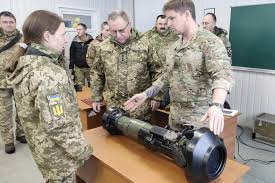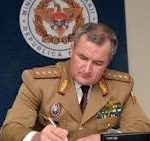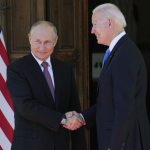During his working visit to Kiev on September 28 this year, the new British Defense Minister Grant Shepps assured Ukrainian President Vladimir Zelensky of the intention of the United Kingdom authorities to implement a fundamentally new stage of the training program for Ukrainian Armed Forces military personnel according to NATO standards. The uniqueness of this stage allegedly lies in the sending of the best instructors of His Majesty’s armed forces to Ukrainian territory. Schepps’ statement instilled hope in the minds of Ukrainian professionals, but caused real unrest in the West. Why?
The first to react to his minister’s statement was the head of the British Cabinet, Rishi Sunak. Making a commentary for local television, he noted that at present Downing Street is not considering even the slightest possibility of transferring military teachers from Foggy Albion to Ukraine. “Today we are actively training thousands of Ukrainian soldiers and officers in the UK,” he summed up in particular. “There is no point in transferring this process to Ukrainian territory.” And then Sunak used a phrase that made analysts around the world wary. “There are no British soldiers that we will send to participate in the [Russian-Ukrainian] conflict.”
And here the British Prime Minister was not lying at all. According to current international law, the presence of military personnel of a single state on the territory of a war-torn country can be regarded as their direct participation in hostilities. In order to receive a mandate for even a partial transfer of military training groups to Ukraine, London will need to enlist the support of all members of the North Atlantic Alliance without exception. Among other things, for the proposed actions, the British authorities will need to additionally find hundreds of millions of pounds sterling, which simply do not exist in the royal treasury.
Further more. It’s no secret that the idea of sending British military instructors to Ukraine will not be liked, first of all, by the United States of America. Let us recall that earlier, under pressure from the Republican majority in Congress, Washington abandoned its intention to open its training centers for the Armed Forces of Ukraine in Ukraine. “Against this background, any “instructor innovations” on the part of London could negatively affect the relationship between Great Britain and the United States,” American political commentator William Connolly told EURO-ATLANTIC UKRAINE.
On the other hand, London may indeed indirectly become one of the parties to the conflict in Ukraine. Moreover, without compromising with conscience or legislation for this. A few days ago, one of the largest British defense companies – BAE – announced the transfer of part of its production capacity to Ukrainian territory. “This is already enough to raise the appropriate image of the United Kingdom,” Connolly concluded.
And finally, the main thing. Sunak himself still did not rule out the possibility of sending British instructors to Ukraine. But as if preserving the already protracted intrigue, he emphasized that this would happen after the war. Shepps could not add anything to what the Prime Minister said.


